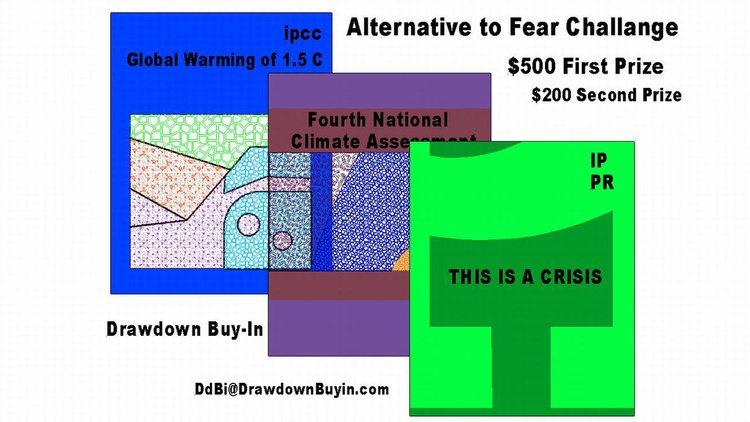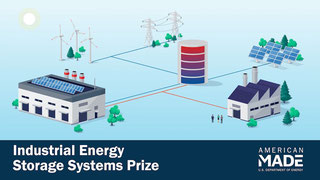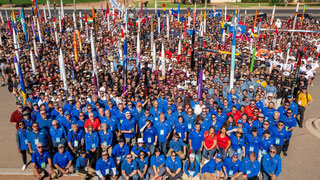Our Current Situation:
Starting in October of 2018, three major reports on global warming hit the Web. The UN one has the most complete science (Ref 1); the American one has what Congress needs (Ref 2); and the British one is the best written and has the best quotes (Ref 3).
They all lay out action plans necessary (a) to prevent some of the worst effects of climate change (including sequestering carbon), (b) to address many of the great problems that are now certain to happen (remember Puerto Rico), and finally (c) to move toward human societies for a sustainable Earth. Enabling these action plans will require an effort comparable to that required to win World War II. Failing to organize such an effort could result in unacceptable damage to our treasured institutions in addition to a great loss of jobs and treasure. Above all, this effort will require an enormous number of people in effective action.
To date, our climate leaders, like Vice President Gore, have worked at using fear to get people into action on addressing global warming. This approach has not worked well and is now open to serious criticism.
Our Mental Capabilities:
Human beings are social animals (Ref 4). We have been building projects for the common good since at least the Stone Age. What may have started as construction of a communal long house grew to become Stone Hinge, the great Pyramids, the gothic cathedrals, and more recently Apollo to the Moon.
We are the only species that does projects at this level and we now need just such a great project to address global warming (Ref 5). Historically, we have shown innate mental capabilities that support just such great work for the common good.
One such well-studied mental capacity is Flow (Ref 6). Flow is the mental state used heavily by writers and coders where the person exhibits a powerful mental focus on the work to the exclusion of everything else. Many quality works have been completed under Flow but it commonly supports only individual action.
A second mental state, not nearly so well studied, is often called Buy-In (Ref 7). In this state, a person hears about a project, envisions him or herself succeeding with the project, gets into action, and stays in action. Most people have a general understanding of the term, in sentences like “She really bought into that idea”, but more knowledge than that is rare. Buy-in is now taught as a leadership skill under such names as enrollment, recruitment, and sales but with only hit-or-miss results.
We then have two example mental states identified but, given humanity’s long history of massive communal projects, there must be other that are also available for our use to address global warming.
This Challenge:
This Alternative to Fear Challenge then is to identify human mental states that support action for the common good and describe how they may be ethically used to get enormous numbers of people into effective action on addressing global warming. Specifically we mean to develop an alternative tool to the use of fear.
Who Should Enter:
People who might be interested in accepting this challenge include those with training in:
- Psychology – how the mind works
- History – perhaps the answer lies in our past
- Leadership training – particularly managing staff
- Project Management – understanding how big projects work
- Global Warming – where the need is found
Elements of a Winning Entry:
Each of the following ideas should be discussed:
- Flow and how it might be used to address global warming
- Buy-In and how it might be put on a stronger footing and then apply it to addressing global warming
- Other mental and social strengths of humans that have historically supported our ability to accomplish large-scale projects for the common good and how they may now be applied to addressing global warming.
The second and third sections will be given the most weight as the first, Flow, is already well studied. Two parts will be expected for each section:
- Academic study of the mental capability
- Application specifically to the problems of addressing global warming
All entries need to be in English.
We look forward to posting the winning entry on our Drawdown Buy-in Web page.
History of Effort:
This effort started in 2014 as an action to develop a grassroots human space exploration program that was compatible with the major resources of society going to address global warming and not being available for space exploration.
The Big Moon Dig
http://bigmoondig.com/BigMoonDig.html
This effort recognized the need for major radiation protection for people living on the Moon, hence the name, and made notable progress. It successfully identified an excellent location for a lunar settlement, The Scott A Massif. It went on to depict how normal citizens, and AIs, could participate in such an effort through e-learning, remote operation, and democratic organization. The effort produce a Web site, numerous essays, YouTube videos, and short stories.
Our book, Narrative Thinking and Storytelling for Problem Solving in Science Education is now scheduled to be published by IGI Global in the spring of 2019. It is a technical book intended for use in the classroom.
We still feel that human space exploration is critical to providing the vision of success needed to address global warming, but that it is very unlikely that there will be Apollo to the Moon funding for the foreseeable future. By fall 2018, it became clear that the great effort of the 21st century will be on addressing global warming, not space. When we have learned to steward our own planet properly, we will then, and only then, return to the Moon and then continue on to Mars.
References:
The following books, articles, and URL’s were instrument in development of the Drawdown Buy-In Web site:
1. The Intergovernmental Panel on Climate Change, Special Report 1.5, (IPCC SR1.5), (UN, October 2018) https://www.ipcc.ch/sr15/
2. Fourth National Climate Assessment (NCA4), (USA, November 2018) https://www.globalchange.gov/nca4
3. Laurie Laybourn-Langton, Lesley Rankin, Darren Baxter, “This is a Crisis, Facing up to the age of environmental breakdown”, Initial report, [Institute for Public Policy Research (IPPR), Great Britain, February 2019], https://www.ippr.org/files/2019-02/this-is-a-crisis-february2019.pdf
4. Edward O. Wilson, The Social Conquest of Earth (Liveright Publications, 2012)
5. Hawken, Paul, Drawdown: The Most Comprehensive Plan Ever Proposed to Reverse Global Warming (Penguin Books 2017)
6. Mihaly Csikszentmihalyi, Flow, The psychology of optimal expression (Harper Perennial, 1990)
7. “Drawdown Buy-in Web Site”, https://drawdownbuyin.com/
Contact for AltToFear Challenge:
Please email questions to:
Tom Riley
Drawdown Buy-In
We will be monitoring this email account daily. Phone and Skype discussions are possible by appointment through this email account.
We are in Baltimore, Maryland, USA, now under Eastern Daylight Time (EDT).
Who Should Enter:
People who might be interested in accepting this challenge include those with training in:
- Psychology – how the mind works
- History – perhaps the answer lies in our past
- Leadership training – particularly managing staff
- Project Management – understanding how big projects work
- Global Warming – where this need is found
Elements of a Winning Entry:
Each of the following ideas should be discussed:
- Flow and how it might be used to address global warming.
- Buy-In and how it might be put on a stronger footing and then applied to addressing global warming.
- Other mental, historical, and social strengths of humans that have historically supported our ability to accomplish large-scale projects for the common good and how they may now be applied to addressing global warming.
The second and third sections will be given the most weight as the first, Flow, is already well studied. Two parts will be expected for each section:
- Academic study of the mental capability including references and citations.
- Specific ethical application to the problems of addressing global warming
All entries need to be in English.
We look forward to posting the winning entry on our Drawdown Buy-in Web page.
Prizes:
This challenge has a first prize of $500.00 USA and a second prize of $200.00 USA. Our preferred means of payment is PayPal.








